Cameroon’s Anglophone crisis- Address humanitarian consequences of prolonged conflict and urge AU’s personal reckoning
(Author: RACHEL GREENWOOD)
Summary:
Cameroon’s Anglophone crisis is one of the continent’s most forgotten conflicts and still the protracted crisis has contributed to mass displacement, a humanitarian crisis, and violence that impacts the government, separatists, and civilians. This crisis has its roots in colonialism and has gone from a relatively small protest from a group of marginalized Anglophone civilians to a fully-fledged separatist movement.
As Anglophone resistance has escalated into an armed conflict, it has had a significant impact on civilians. Indeed, as of 2022 – over five years since the conflict began – over 712,000 people were internally displaced in the Anglophone regions and in the Francophone Littoral, West, and Center regions as of August 2021, and at least 2.2 million were in need of humanitarian aid. Meanwhile, the AU, which has a long history of avoiding secessionist conflicts, has been very silent on the humanitarian crisis in Cameroon, while the US has resorted to business as usual while also engaging in policy stalemates on the matter.
Background:
Cameroon’s Anglophone crisis has touched every sphere of the country and the conflict has been particularly stark for education and children’s futures. Students affected by the crisis often face difficult options, whether to finish schooling in the midst of protracted conflict and limited educational opportunities or start working and abandon dreams of an education. Neither option is a good one, but these are the realities of the Anglophone crisis that the world has chosen to largely ignore.
The Anglophones of Cameroon are twenty percent (20%) of the population and have experienced marginalization at the hands of the Francophone-majority government since independence. A movement led by teachers, lawyers, and students emerged in October 2016, and called for a return to a federal model of government that existed from 1961 to 1972. Anglophone secessionists have mobilized the discontent into a fully-fledged separatist movement, with the Anglophone regions seeking independence from Francophone Cameroon.
https://www.pambazuka.org/human-security/president-paul-biya-and-cameroon%E2%80%99s-anglophone-crisis
Concerns about violence and a humanitarian crisis emerged in 2016 when government forces responded to the Anglophone demonstrations with excessive force and have grown as the government and separatists engage in a protracted conflict with no clear resolution in sight.
Indeed, the government response to the 2016 protests sparked further agitations and calls for secession. Since then, the conflict has evolved into a violent and protracted conflict, involving military operations by the government and violence by the armed separatist groups. The conflict has had significant consequences for civilians, including death, displacement, and a humanitarian crisis – which is magnified by insecurity and climate-related events, like floods and droughts – in the affected regions. In addition, the humanitarian crisis includes food insecurity, displacement, school closures, and inadequate access to health care and a higher incidence of health epidemics like cholera.
While the Anglophone crisis enters its seventh year, it can be traced all the way back to colonial rule. Indeed, its origins begin in 1920 when the League of Nations divided the former German colony between Britain and France after World War I. This decision established separate British and French mandates, creating Anglophone Cameroon and Francophone Cameroon. At independence, the country reunited, and Anglophone regions experienced marginalization by the Francophone political elites. Marginalization includes language and education, legal and judicial system, economic marginalization, and political representation. For instance, the Francophone-led government has imposed the French language in schools and public institutions, neglecting English-speaking institutions and undermining the quality of education in Anglophone regions. These concerns ultimately led to the 2016 protests and greater Anglophone resistance, which has now escalated into an armed conflict. The conflict is currently ongoing, and Cameroon’s President Paul Biya shows no signs of easing the conflict or making an agreement with the separatists that would provide an opening to end the humanitarian crisis.
Analysis:
Human rights concerns exist on both sides of the conflict – the longer the protracted conflict between the Anglophone separatists and the government continues, the more harm civilians will experience. Some of the human rights concerns include:
- Excessive use of force
- Arbitrary arrests and detentions
- Displacement of civilians
- Attacks on schools and educational institutions
- Freedom of expression and press freedom
- Humanitarian access
https://panafricanvisions.com/2020/03/jesuit-superiors-of-africa-propose-inclusive-dialogue-to-solve-cameroons-anglophone-crisis/
The conflict, which began in 2016 as a result of grievances over marginalization, has escalated into a violent struggle between separatist groups and the Cameroonian government. The humanitarian crisis has had severe consequences for the civilian population, as mentioned above. Displacement of civilians has been particularly severe, especially considering how other conflicts in the region have also led to displacement and magnified the issue, including the climate crisis in Lake Chad.
Many internally displaced persons (IDPs) have sought refuge in neighboring regions or live in overcrowded and precarious positions in makeshift camps. As of December 31, 2021, population movement affected almost 2 million people within Cameroon, either as IDPs, refugees, or returnees. Internal displacement, specifically, reached 1.2 million by 2022. Displacement – in addition to school shutdowns by the separatist groups – has had a disproportionate impact on children, whose education has been disrupted by the conflict and are left in increasingly vulnerable positions. For instance, UNICEF reported in 2019 that more than 855,000 children in Cameroon were out of school due to ongoing violence and instability.
The international community, including the AU and United States, have called for a peaceful resolution to the conflict and for the protection of civilians, but they have not done enough to ensure that both have happened. As the conflict reaches a stalemate, the humanitarian crisis worsens, and the protection of civilians becomes more urgent than ever.
http://democracyinafrica.org/end-sight-cameroons-anglophone-crisis/
Here is a summary of previous AU and US responses:
AU Response
The African Union (AU) has been mostly silent on the Anglophone crisis in Cameroon, and it has been noticeably absent from the AU’s Peace and Security Council. In addition, some African countries have been complicit in the ongoing crisis. For instance, in 2018, Nigeria forcefully returned 47 Southern Cameroonian asylum seekers to Cameroonian authorities. This forcible return violates non-refoulement, a cornerstone of international law that prevents states from returning asylum seekers to countries where they could be in danger.
Beyond being complicit, some also claim the AU’s silence is because of the conflict’s separatist nature. Indeed, the AU has expressed unwavering commitment to Cameroon’s unity and territorial integrity since 2018. That year, Moussa Faki Mahamat visited for two days and met with several high-level government officials. Since then, the African Union initiated a process of dialogue to facilitate talks between the Cameroonian government and the separatist groups in 2019. However, while the initiative aimed to find a peaceful and inclusive solution to the crisis, it ultimately failed to do so.
To this date, only the African Commission of Human and People’s Rights has condemned firmly the government’s actions and the AU has not applied any pressure on President Biya. Further, Nigeria has been an ally to Biya’s government, especially as it deals with its own separatist agitations in Biafra. In addition, African regional bodies have been silent, and Canada is supposedly facilitating a peace process – though the Cameroonian government has denied this statement.
US Response
The US has been a key regional partner to Cameroon, particularly on issues of regional stability and countering terrorism in the Lake Chad Region. It is surprising that the country’s regional efforts have not extended more to the ongoing Anglophone crisis. We know that instability creates a vacuum that can lead to extremist movements, which has been a significant focus of the US and the international community in West Africa.
The US government has mostly released a series of weak State Department statements and stalled action in the Senate. Here is a brief timeline of some key events:
- The US issued a statement in December 2016 condemning human rights violations and asking the government to better consider the Anglophones’ claims to autonomy.
- In May 2018, the US ambassador to Cameroon condemned security forces burning villages in the English-speaking areas, and the US Congress held two hearings on the matter in June 2018.
- On September 8, 2020, US Senators Jim Risch and Ben Cardin, joined by a bipartisan group of cosponsors, introduced a resolution calling for an end to the violence in Cameroon and for inclusive dialogue to address the underlying political tensions at the root of the conflict.
- On June 7, 2021, US Secretary of State, Antony Blinken, announced visa restrictions on “individuals who are believed to be responsible for, or complicit in, undermining the peaceful resolution of the crisis in the Anglophone regions of Cameroon. The decision reflects our commitment to advance a dialogue to peacefully resolve the Anglophone crisis and support respect for human rights.”
Recommendations:
To end the crisis, leaders must take decisive action to prioritize civilian protection and the humanitarian response. In addition, they must work to address the conflict’s root causes. Below are recommendations specifically targeted at the African Union and US government:
African Union
- Call on Francophone-majority countries in Africa and French speaking countries in the international community, like France and Canada, to help mediate the conflict. In addition, it is important to publicly recognize the conflict’s colonial roots.
- Ensure that CSOs can deliver basic humanitarian services to the affected regions.
- Address the ongoing harm to children, particularly disruptions to education and continued displacement. The AU could partner with education and children focused CSOs to ensure that young people are not being left behind and try to keep schools open where possible.
- Long-term, the AU must have an internal reflection on the right to self-determination under the African Union Charter for Human and Peoples Rights and reconcile it with the 1963 OAU Charter that calls for the sanctity of borders. The AU has so far shied away from addressing separatist claims, but at what cost? This question requires the AU to ask itself if it is truly committed to self-determination and human rights or if sovereignty outweighs the people’s needs.
US Government
- Engage diaspora & CSOs in the United States. Diaspora communities in the United States can help raise awareness of the ongoing Anglophone crisis and engage with policymakers and international actors to advocate for solutions to the conflict. They can bring increased visibility to the situation and put pressure on relevant stakeholders.
- Support for political and institutional reforms. The US should work to address President Biya’s Francophone-majority government and resolve the marginalization of Anglophone populations.
- Bring the Cameroonian government and separatist groups together to agree on a cessation of violence and an additional agreement that ensures that protection of civilians.
REFERENCES:
1. “Cameroon.” Human Rights Watch, January 13, 2022.
https://www.hrw.org/world-report/2022/country-chapters/cameroon.
2. Allegrozzi, Ilaria. “‘They Are Destroying Our Future.’” Human Rights Watch, March 28, 2023. https://www.hrw.org/report/2021/12/16/they-are-destroying-our-future/armed-separatist-attacks-students-teachers-and.
3. Crisis Group. “Cameroon’s Anglophone Crisis at the Crossroads,” November 6, 2017. https://www.crisisgroup.org/africa/central-africa/cameroon/250-cameroons-anglophone-crisis-crossroads.}
4. Exposure. “Cameroon: Six Things to Know about the Humanitarian Crisis,” n.d. https://unocha.exposure.co/cameroon-six-things-to-know-about-the-humanitarian-crisis.
5. Africa Renewal. “Drying Lake Chad Basin Gives Rise to Crisis,” February 3, 2020. https://www.un.org/africarenewal/magazine/december-2019-march-2020/drying-lake-chad-basin-gives-rise-crisis.
6. ReliefWeb. “Cameroon: Humanitarian Dashboard (January to December 2021) – Cameroon,” March 11, 2022. https://reliefweb.int/report/cameroon/cameroon-humanitarian-dashboard-january-december-2021.
7. IDMC – Internal Displacement Monitoring Centre. “Cameroon,” n.d. https://www.internal-displacement.org/countries/cameroon.
8. Crisis Group. “Cameroon’s Anglophone Conflict: Children Should Be Able to Return to School,” September 20, 2022. https://www.crisisgroup.org/africa/central-africa/cameroon/cameroons-anglophone-conflict-children-should-be-able-return-school.
9. “More than 855,000 Children Remain out of School in North-West and South-West Cameroon,” n.d. https://www.unicef.org/press-releases/more-855000-children-remain-out-school-north-west-and-south-west-cameroon.
10. “UNPO: Ambazonia: Nigeria Hands over 47 Asylum-Seekers to Cameroonian Authorities,” n.d. https://unpo.org/article/20701.
11. Organization of African Unity (OAU), Charter of the Organization of African Unity, 25 May 1963, available at: https://www.refworld.org/docid/3ae6b36024.html [accessed 7 July 2023]
12. Crisis Group. “Canada Initiative Offers Opportunity for Cameroon Peace Process,” February 10, 2023. https://www.crisisgroup.org/africa/central-africa/cameroon/canada-initiative-offers-opportunity-cameroon-peace-process.
13. United States Department of State. “U.S. Relations With Cameroon – United States Department of State,” November 7, 2022. https://www.state.gov/u-s-relations-with-cameroon/.
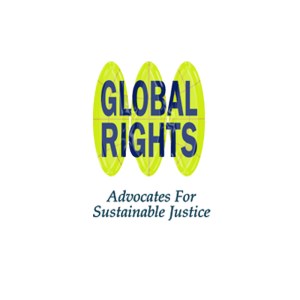
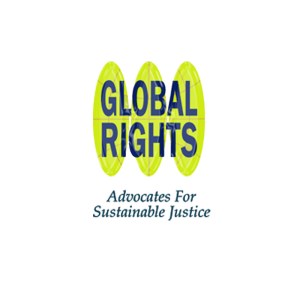
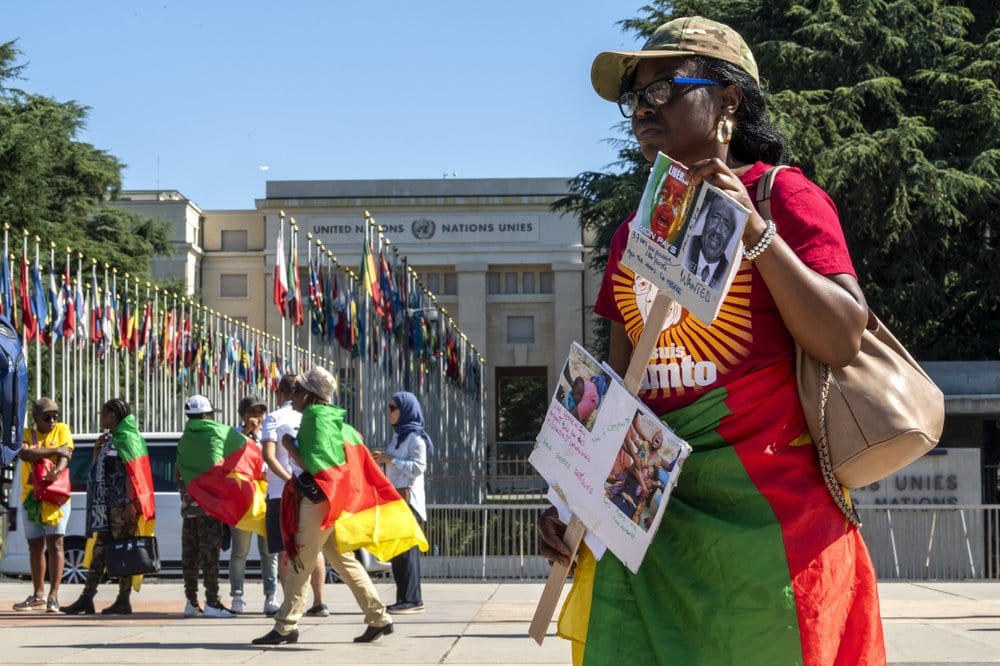
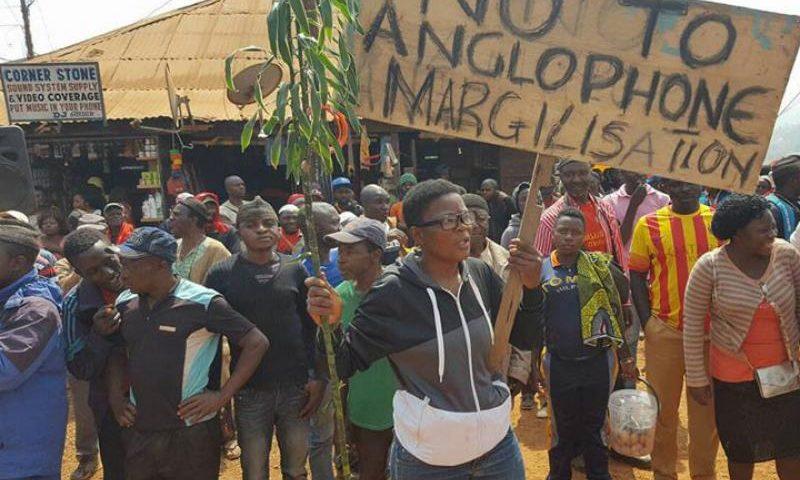
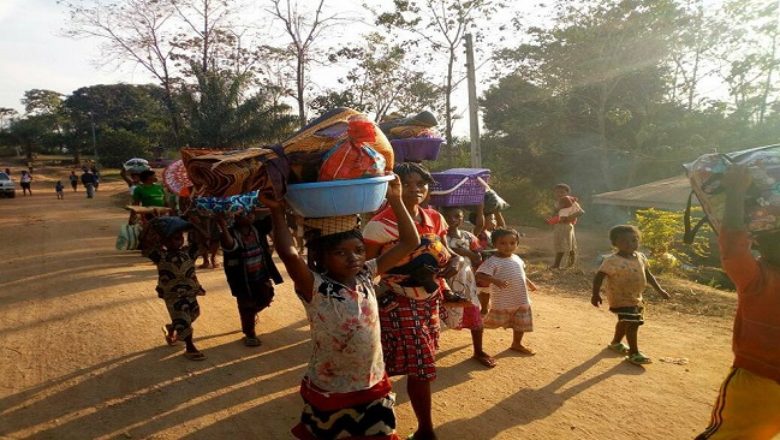
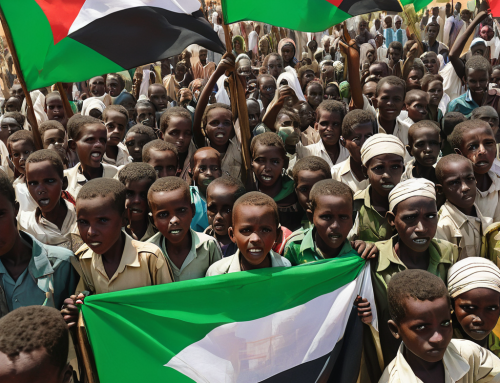
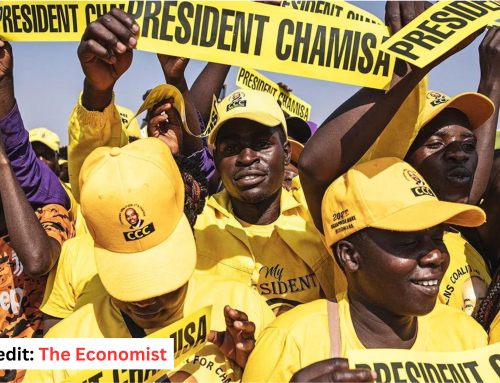

Leave A Comment